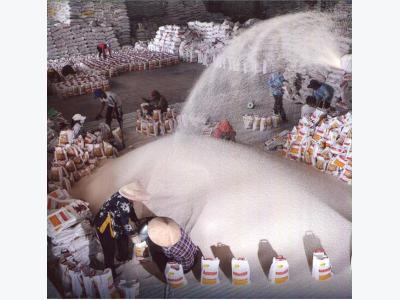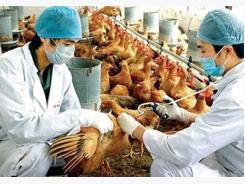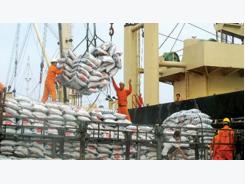Proposal on abolishing a series of business conditions for rice exports

On the afternoon of February 22, 2017, in Ho Chi Minh City, the Vietnam Institute for Economic and Policy Research (VEPR) organized a seminar on proposal to amend Decree 109/2010/ND-CP on rice exports busness.
The Seminar was implemented in the framework of cooperation among the Agriculture Union, VEPR, and the University of Economics and Business-Viet Nam National University Ha Noi to carry out some research on the rice market and policy advocacy towards the appropriate institutions and to promote the development of the Rice industry towards enhancing value-adding and efficiency, and improving the life of Vietnamese farmers.
Decree 109 issued on November 1, 2010 required the traders of rice exports to meet a number of requirements. Until now, after 6 years of implementation, the Decree showed a number of shortcomings needed to be amended to create the motivation for the development of rice export enterprises in particular and the Rice industry in general.
Especially, Decree 109 provided conditions to become a rice export business having at least one specialized warehouse which can store at least 5,000 tons of paddy rice and having at least one mill with an hourly capacity of minimum 10 tons of paddy rice, which meet general regulations issued by the Ministry of Agriculture and Rural Development.
This means that the businesses closely associated with farmers to produce brand name rice products but if these products do not meet the standards above, they cannot be exported. For example, with the Hoa Sua special rice brand of the Vien Phu Viet Nam Company, the company cannot actively access the market, it must authorize big companies which are eligible for rice export. With many efforts to build the brand name, the Company constantly worries about the license, not for output or price.
According to the assessment of experts, rice exports seem to be the place for the big companies which have advantages in the market and have the ability to impose unfavorable conditions for the other subjects, especially are the farmers.
Dr. Nguyen Duc Thanh, Director VEPR pointed out that, due to a few enterprises which have licenses for rice exports, while the surplus amount of domestic rice is large, many small enterprises must enhance the non-commercial export to balance the surplus. Non-commercial export accounts for a large proportion but it is pushed out of official export, causing many potential risks for the Vietnam rice market.
Therefore, the conditions for the rice export business are put into a dilemma, if we control well and do not permit non-commercial export, the domestic rice supply is in excess; and if we permit, it will show that the ability to implement the policies is not strict which may cause corruption in non-commercial export activities.
Not only for license issue, but Vietnam’s policies for rice exports still cause other restrictions for the output of private businesses. Circular 44/2010/TT-BTC detailed a number of Articles of Decree 109 stipulating that a trader is not permitted to contract for rice exports or let their buyer re-export the rice into the market which has centralized contracts while G2G transaction is available; except being approved in a document by the Ministry of Industry and Trade. Hence, the rice exports of many private businesses are only permitted to enter in small markets or new markets, meanwhile major markets with major partners which have Government agreements are closely controlled under the centralized regulations.
From this fact, the VEPR proposed to abolish the rice export business conditions that rice exporter must have warehouse and mills as well as regulations on the site for the warehouse, and mills and maintain the circulation reserve equal to at least 10% of their rice exports of the previous 6 months.
VEPR proposed to abolish regulations on the raw material areas of the rice export business. Instead, focusing on management of output rice quality, accordingly, the rice production must be ensured on the safety and technical standards on the levels of plant protection chemicals and antibiotics, etc. VEPR also launched the 2nd plan is that the management of rice output quality needs incentive mechanisms for businesses to build raw material areas.
For conditions for becoming key traders in the transaction of the centralized contracts, VEPR proposed not to appoint the key trader and fix the rate directed or authorized for export by traders. The Ministry of Industry and Trade set the specific criteria to become the key centralized trader and bid for negotiation right and regulation of transactions in the G2G contracts when there are many enterprises meeting the set criteria.
Related news
Tools

Phối trộn thức ăn chăn nuôi

Pha dung dịch thủy canh

Định mức cho tôm ăn

Phối trộn phân bón NPK

Xác định tỷ lệ tôm sống

Chuyển đổi đơn vị phân bón

Xác định công suất sục khí

Chuyển đổi đơn vị tôm

Tính diện tích nhà kính

Tính thể tích ao




 MoIT paves way for rice export comeback
MoIT paves way for rice export comeback  VPA warned that the Vietnam pepper import-export contracts…
VPA warned that the Vietnam pepper import-export contracts…